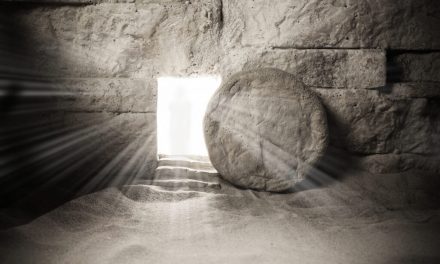
Readings for Twenty-eighth Sunday in Ordinary Time
“At that statement his face fell,
Mark 10:22
and he went away sad, for he had many possessions.”
Oh, no. For those of us with “many possessions,” and that’s most of us in the United States, our reaction to this line might simply be “oh, no.” Rather than hearing this line as good news of the gospel, we, too, might be inclined toward feelings of sadness or guilt. We often live in the midst of abundance and comfort, even if we also may find ourselves in difficult financial situations at times or notice that we don’t live as luxuriously as others.
And indeed, we are right to dwell upon the moral questions surrounding wealth, wealth distribution, material possessions, and that which has been named throwaway culture. Economic ethics continues to have a crucial place in the field of Catholic moral theology, for good reason. Yet, if we suggest this Sunday’s readings are only, or primarily, about economic ethics, we may be missing the point.
The wealthy young man had approached Jesus with a measure of humble confidence. He was confident enough to approach Jesus, but humble enough to kneel before Jesus as “good teacher.” He was humble enough to know there was more to life and confident that he wanted it. He was humble enough to ask a question and confident in responding to the good teacher that he had kept the commandments. Ultimately, he was humble enough to go away sad.
And perhaps we can identify with this sadness if we imagine giving away all that we own, which is surely more than this man living two millennia ago possessed. We might also share in something else: a sense of compunction. There is a feeling of guilt when we realize that we *don’t* want to give up everything to follow Jesus. The disciples’ reaction is telling.
They were exceedingly astonished and said among themselves,
Mark 10:26-27
“Then who can be saved?”
Jesus looked at them and said,
“For human beings it is impossible, but not for God.
All things are possible for God.”
Suddenly, the story is flipped. This isn’t the story of a wealthy young man being condemned to hell. This isn’t a story intended to cause our despair at our attachment to possessions. Instead, we are reminded that salvation comes from God. Salvation comes through Jesus. We cannot save ourselves, even if we follow all the commandments. Those of us who study Catholic moral theology are obviously concerned with human decisions and actions, yet we shouldn’t lose sight of God’s actions.
The other readings for this Sunday complement this message. In the responsorial psalm, we have the refrain: “Fill us with your love, Lord, and we will sing for joy!” (Ps. 90:14). The words are those of longing and petition, recognizing that all their success and joy depends upon love of God… and that they are lacking it. Again, they are confident in turning to God, but humbled enough to recognize that they cannot save themselves or guarantee their own success.
Likewise in the first reading from the book of Wisdom, a passage which begins “I prayed” (Wis. 7:7) and concludes by saying that “all good things” and “countless riches” came by preferring wisdom over all else. Wisdom, often an image for the Holy Spirit, is a gift, and the first step in receiving that gift is to pray for it and want it more than anything else. As the second reading from St. Paul’s Letter to the Hebrews reminds us, Jesus – the Word – can discern reflections and thoughts of the heart.
It is not the end of the story if we, like the wealthy young man, feel a little sad upon hearing the words to sell everything, give it to the poor, and follow Jesus. As with this man, Jesus knows. It is hard, very hard. Our best response, then, is to want to follow Jesus regardless of the cost, to ask for that desire if we find it lacking, and to recognize that we find this task hard because we are not meant to save ourselves. It is not possible, but all things are possible with God.




